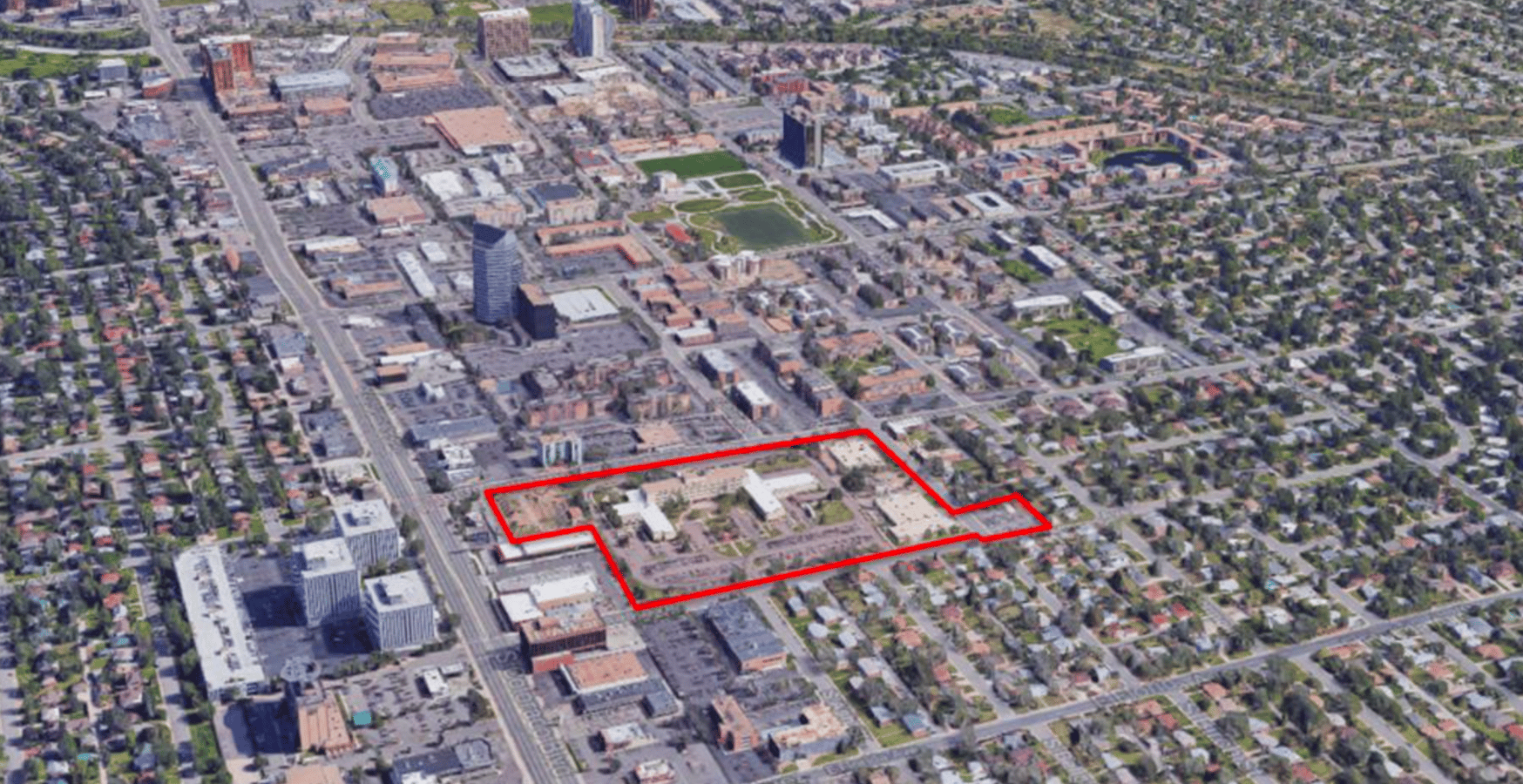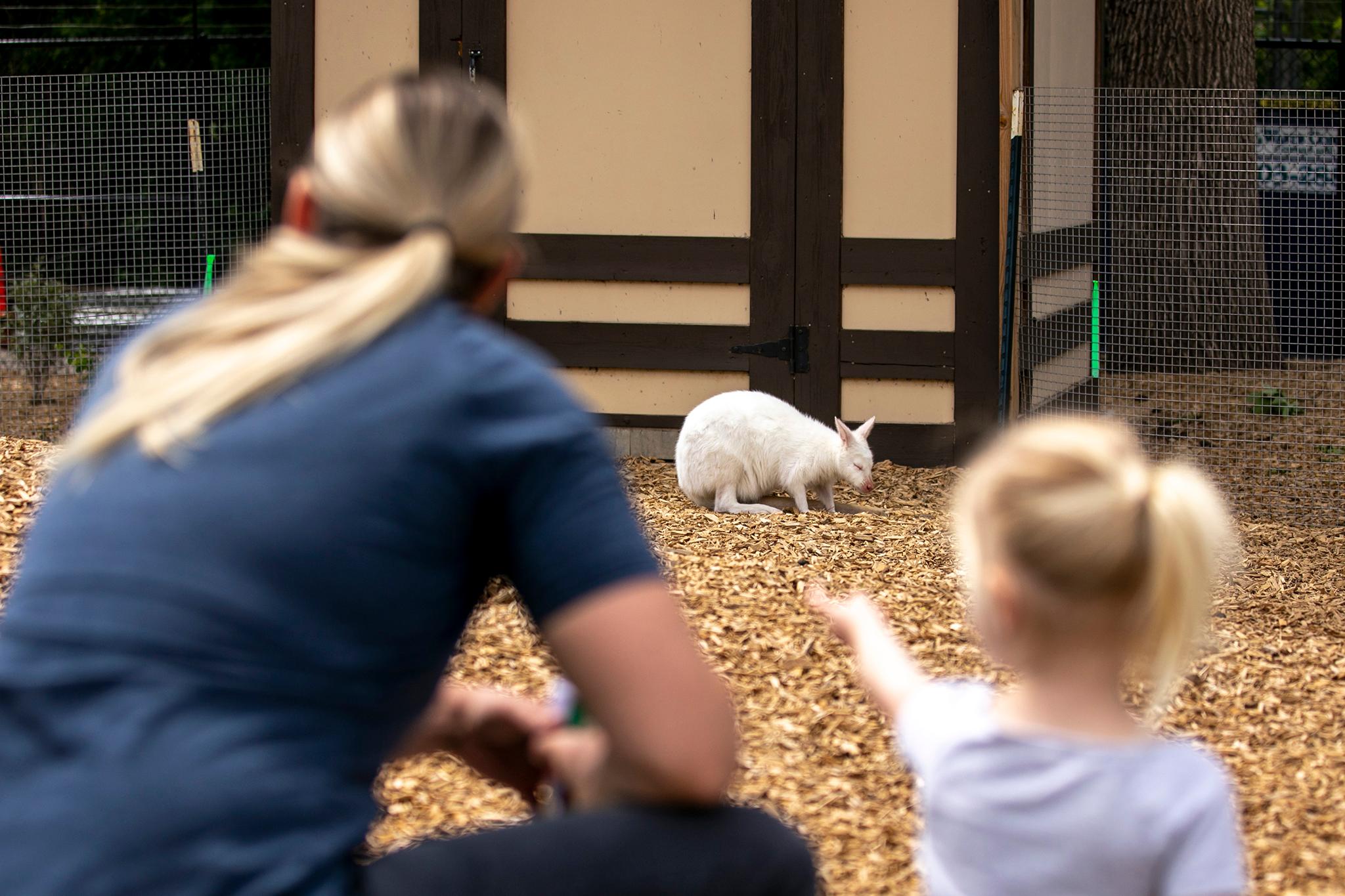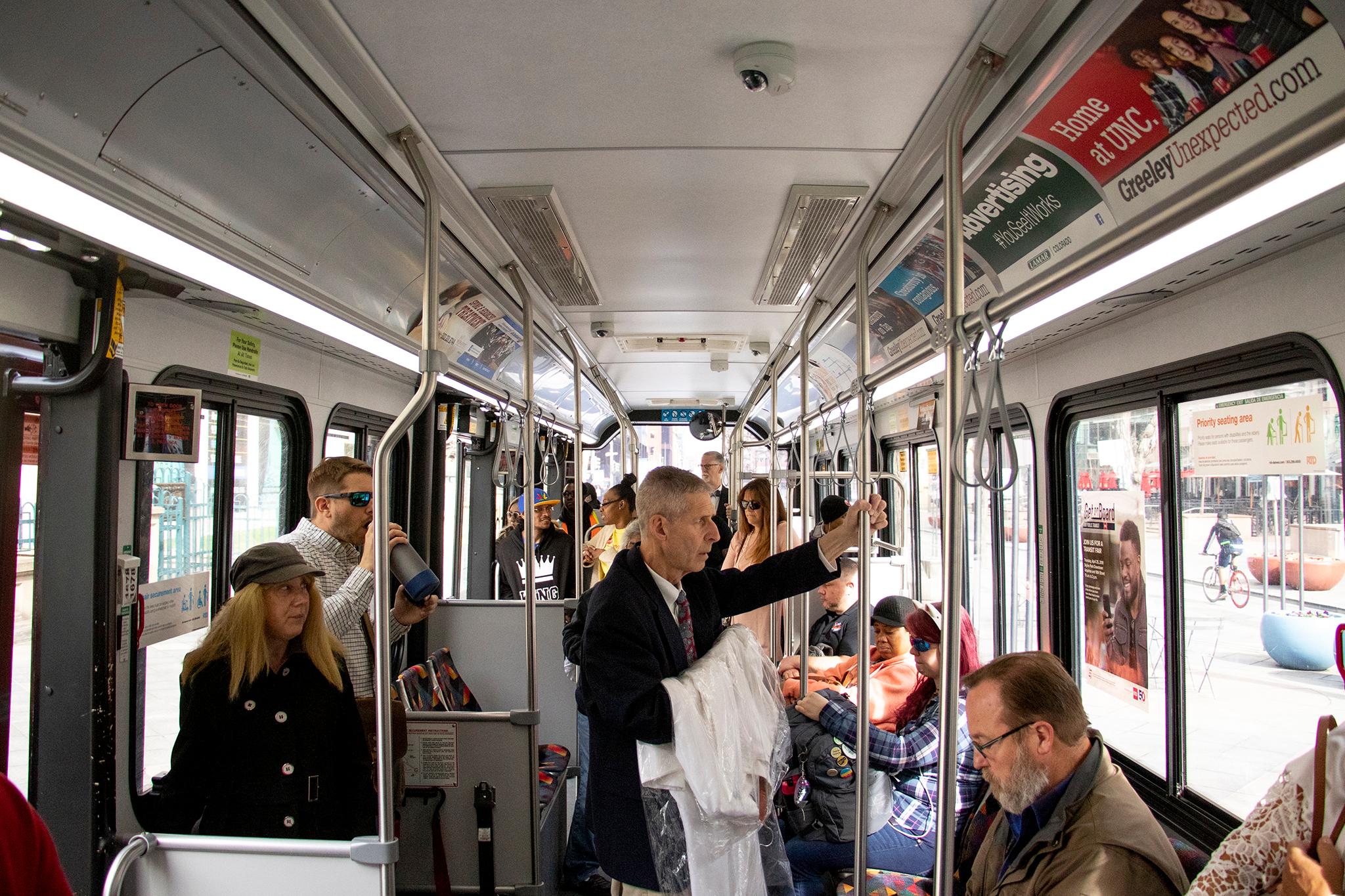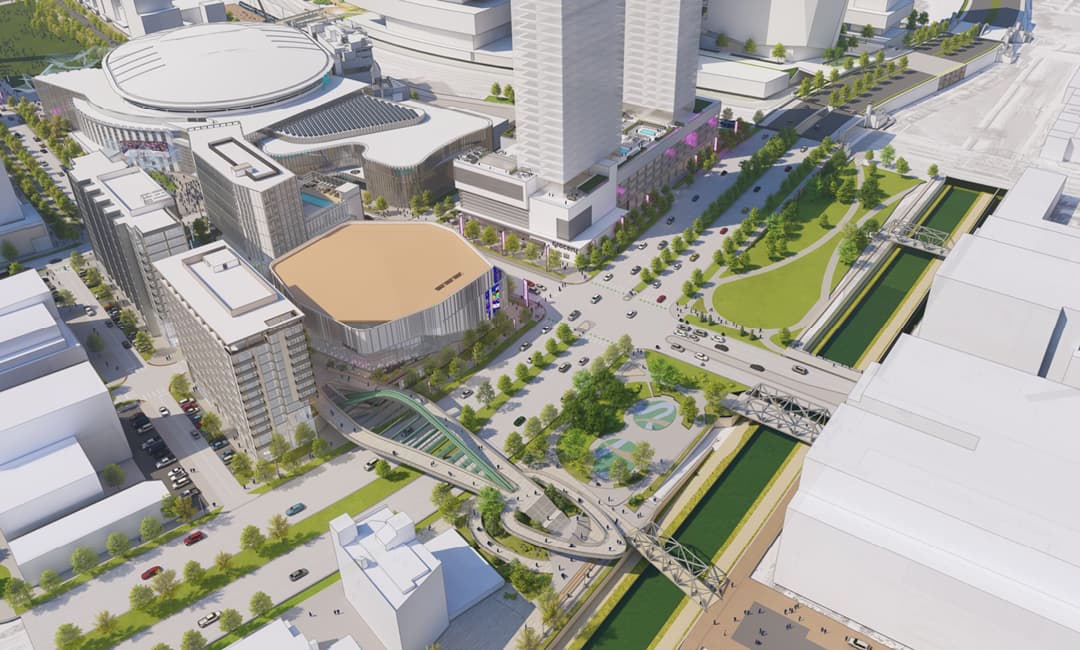The Denver City Council on Monday cleared the way for a group of languishing, tan buildings and bare surface parking lots in Virginia Village to become a dense community of hundreds of homes -- 150 of them affordable -- with restaurants, shops and offices.
Most of the land sits at 4201 E. Arkansas Ave., the Colorado Department of Transportation's former headquarters. Kentro Group, a developer, needed the council to rezone the 1950s campus in order to realize its vision, which includes buildings up to eight stories high and 150,000 square feet of commercial space. (The site spans 12 acres, but Kentro plans to redevelop 2000 S. Holly St., an 11-acre site owned by CDOT, as well.)
The goal is to add homes and people to a more walkable district on what is now a sprawling segment near south Colorado Boulevard "characterized by auto-oriented strip development," Denver city planner Andrew Webb said.
Council members voted 11 to 1 to rezone the area, with City Councilman Albus Brooks absent. Thirty-one people spoke in favor during a public hearing, 15 spoke against. Denver Community and Development received 18 letters of opposition and 42 in support.
"We do have a housing crisis in Denver. It's something we talk about that every single day, and the answer is to build more housing," said City Councilwoman Kendra Black, who voted for the zoning change. "Denver is landlocked. We need more supply ... The only we're gonna get more is through density."
The site falls in City Councilman Paul Kashmann's district. Kashmann voted no, saying he wanted density "stepped down" and a requirement for more open space. The local streets can't handle the additional traffic, he said.
"We have the right developer, the right concept," Kashmann said. "But the wrong zoning."
Kentro made concessions to win the council vote.
The developer must build 150 homes that are affordable for households making no more than 60 percent of the area median income -- about $48,000 for a family of three -- according to its signed agreement with the city. Kentro must make 10 percent of the development public open space and create a plan to manage traffic.
The developer also lowered its rezoning request from 12 stories to eight. (If the current zoning rules stuck, the property owner could build up to 12 stories tomorrow.)
"My reservation isn't a dense place-making project," said City Councilman Rafael Espinoza. "My concern is that market forces in that area would result in something far less dense and more transient, and lacking any sort of destination aspect."
While single-family homes reign south and east of the site, apartment buildings, stores and hotels surround it too.
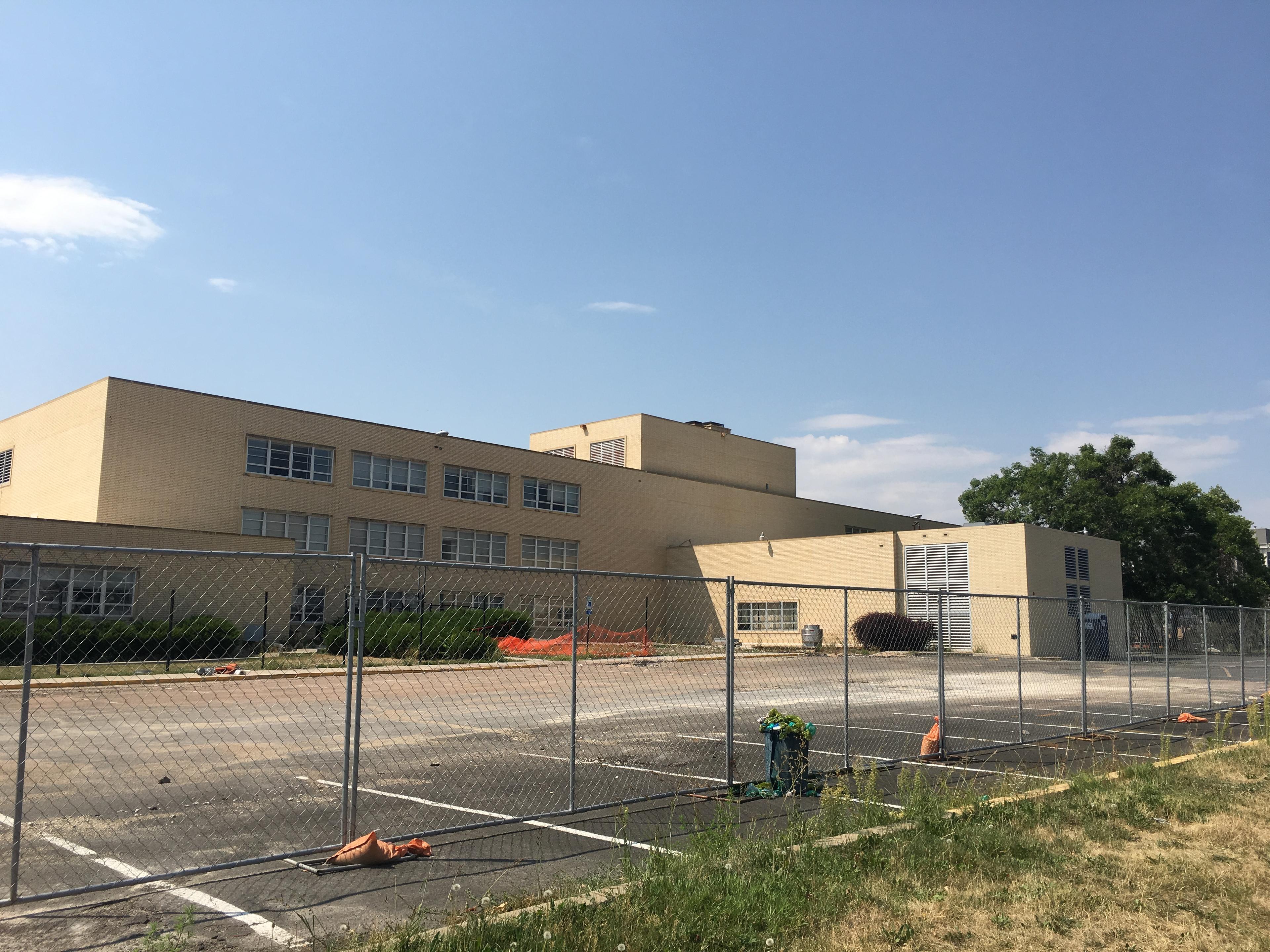
Several neighbors remain opposed to the development, however, and they made it clear during a public hearing Monday.
"This is an attempt to shoehorn in something that is oversized and doesn't fit with this residential neighborhood," said Diane Wolta, a Virginia Village resident. "Yes, we all want cute retail shops and affordable housing to be built, but this plan is too dense for the area."
Wolta and others opposed the project on the grounds of more people, more traffic, and change in general. Some residents feared "ugly" buildings and rising crime, but did not elaborate on their reasoning. Loyal Merrick, a Virginia Village resident, said burglary is already common and more people are "just gonna add to that problem."
"We're gonna have to live with them and we're all gonna resent them forever," Merrick told the council, referring to future residents.

While some aimed to stop the project, others saw change as inevitable and aimed to get something good out of it.
Supporters said they liked the idea of mixing incomes, deepening the city's shallow housing stock and creating a compact district where people can live in walking distance from new jobs, transit and places to eat and shop.
"For some of us who have been longtime residents, change is hard to see," said Virginia Village resident Nancy Csuti. "It's hard to sit in traffic and it's hard to see unfamiliar things going up, but I'm here to speak in favor of the new development and new zoning. I think it's time to embrace change and make sure there are places for people of all types to live."
Said Gerald Walshe, another local: "We all say we want to be part of the solution. As a community, the way we show that support is with developments like this."
The Virginia Village Ellis Neighborhood Association disbanded last month amid disagreement over the project as neighbors fought over the organization's official stance. Power and influence were a topic Monday as well. One resident pointed to a diverse neighborhood that was not reflected in the speakers at the City and County Building.
"The demographics of the people who are speaking tonight don't match the demographics of our neighbors," said Kristin Jones. "You're hearing from a lot of white homeowners and that is not what our neighborhood is."
The move clears the way for Kentro to buy both properties from CDOT, currently under contract, for about $19 million. The city government brokered the deal to ensure affordable housing. Kentro and CDOT plan to close on the deal, which hinged largely on the rezoning, in February or March, Kentro co-founder Jimmy Balafas said.

